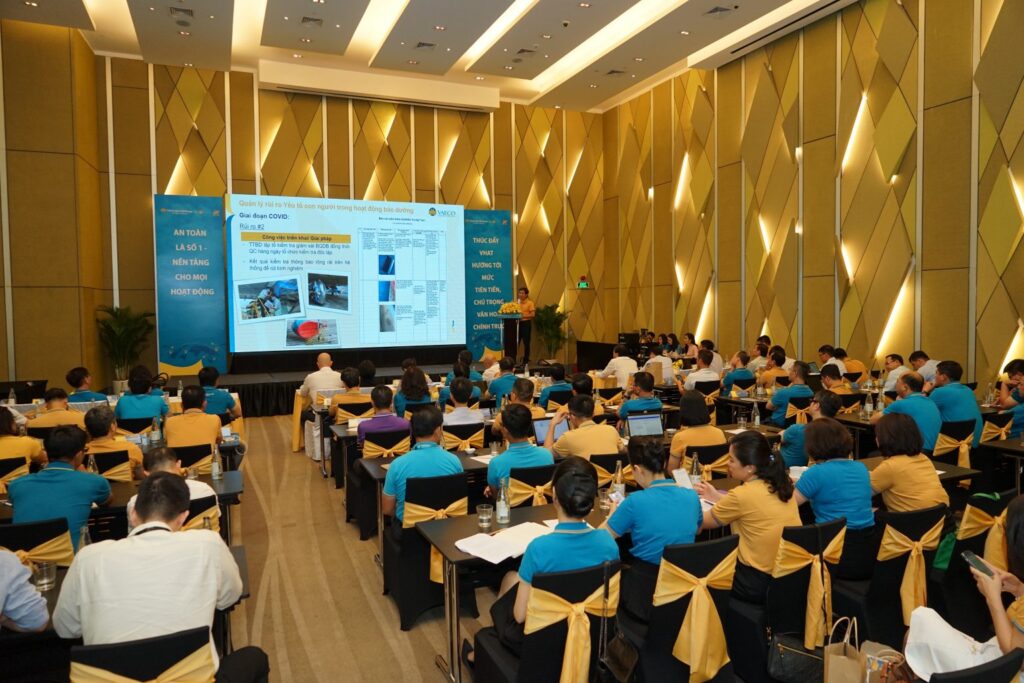A safety culture is a set of practices (hows) and mindsets (way of thinking) that are widely shared by members of an organization to control the most important risks associated with its operations.

Definition of Safety Culture
It is not something specific to each individual. Rather, it is characteristic of a group or of an entire organization. It reflects the attitudes, beliefs, perceptions and values that employees share on safety.
It reflects the influence of organizational culture on the ways in which doing and thinking affect safety. It is gradually forged by the interaction between people and it continues to grow.
In today’s environment, safety in an organization is seen as the combined result of a number of factors namely human behavior (human error and violations of working processes and rules), organizational factors such as supervision, working conditions and procedures, learning planning and organization, potential conditions such as the absence or dysfunctional nature of physical and functional barriers to accident prevention, lack of resources to mitigate threats and neutralize events, or precarious system conditions that make it highly sensitive and unstable.
The safety culture approach emerges when some major events can no longer be explained by individual behaviors, and therefore the part taken by the organization needs to be understood.
The term ‘safety culture’ appeared for the first time in the OECD (Organization for Economic Cooperation and Development) Nuclear Agency report in 1987 (INSAG, 1988) on the 1986 Chernobyl disaster. Security culture has become an interpretive construct and a source for key insights into health, security and safety management in an organization.
The importance of Safety Culture

Safety culture is a sub-aspect of an organization’s culture, which is believed to have a strong influence on the attitudes and behaviors of its members regarding ongoing health and safety operations and organizational safety in general. It is a subculture of organizational culture, referring to individual, work and organizational characteristics that influence health and safety.
The desired safety culture is characterized by behaviors that aim at safe, quality and flexible production. It is always a derivative effect of the collective action of management and employees in the organization.
It is itself created and recreated as organization members continually behave and communicate in ways that seem to them ‘natural’, obvious and unquestionable, and as such serve for building a specific version of risk, danger and safety. The overall effect of a safety culture is to provide safety for everyone in the organization and to contribute to safety in local and national communities.
Safety culture in particular is believed to be a major predictor of an organization’s safety performance. If intrinsic safety values and norms are strong enough then it can be described as a process of ‘value internalization’ that creates a sense of safety and security for individuals and groups.
The core beliefs of a strong safety culture are determined by the necessity, practicality and effectiveness of control measures. It can be described as a set of risk attitudes and perceptions that make employees trust their organization’s safety measures and competitive performance.
The concept of a safety culture is often described as a set of shared values, actions and behaviors that demonstrate a commitment to safety by the individual and collective responsibility of everyone at all levels. all levels of the organization. Safety culture is defined by how employees feel, what they do, and the organization’s safety policies and procedures.
The extent to which attitudes, behaviors, and policies are consistent with prioritizing safety over competitive objectives shows the strength of an organization’s safety culture.
Safety Culture for the Oil & Gas Industry
From Deepwater Horizon and Chernobyl to NASA’s Challenger space shuttle explosion, a poor safety culture has been identified as a major cause of disasters in many industries.
A strong safety culture is especially important in the oil and gas industry, where employees frequently engage in high-risk activities such as operating heavy equipment and working near flammable gases. Below, we explore why a safety culture is important to the oil and gas industry and what companies are doing to improve their certification.
The UK Health and Safety Commission defines safety culture as “the product of individual and group values, attitudes, perceptions, competencies, and patterns of behaviour that determine the commitment to, and the style and proficiency of, an organisation’s health and safety management”.
At the French-owned multinational oil and gas company Total, safety is deeply ingrained in the company’s corporate culture. The company considers safety a “fundamental value” and prides itself on engaging stakeholders across the board, from executive-level managers to on-site employees.

This approach has earned Total a reputation as a company underpinned by a gold-standard safety culture.
“We have two main goals: to ensure that all employees and contractors go home safely and prevent big incidents from happening by managing major risks.” said Bernadette Spinoy, former senior vice president of health, safety and environment (HSE).
At Shell, safety culture is underpinned by the ambitious Goal Zero designed to eliminate injuries, deaths and leaks in all operations. “A strong safety culture is complemented by a competent workforce”.
“We ensure that those responsible for tasks that present a significant safety risk have the necessary training and skills. Our safety experts work in networks to share and implement best practices around the world,” says the Shell website.







 Tiếng Việt
Tiếng Việt
